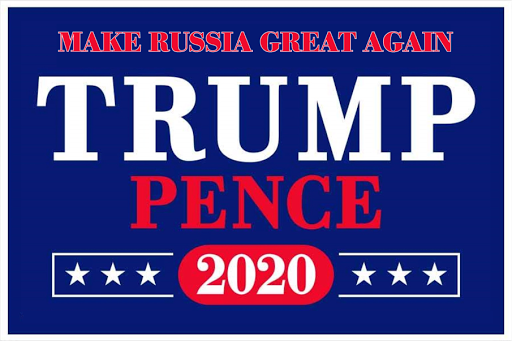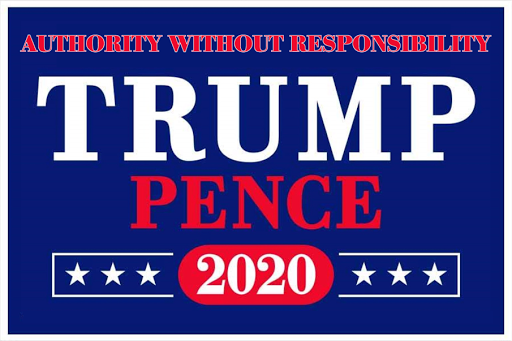Before the coronavirus pandemic, President Donald Trump’s re-election campaign was relying on touting the economy as Trump’s greatest accomplishment. With the economy in a tailspin because of the pandemic and Trump’s handling of it, the president continues to rely on the former economy and on the rebound that will supposedly blossom in his second term. In fact, at least for most people, Trump deserves no credit for the economy.
As we enter the final stage of the 2020 presidential campaign, the economy is a mess, largely because Trump failed to take responsibility dealing with the coronavirus pandemic. Unemployment is above 8%, many of the formerly employed will never be able to return to their old jobs, and we are likely soon to see a rash of evictions. Moreover, the return of students to schools and universities promises to balloon the number of COVID-19 infections, which will further damage the economy.
But the stock market is doing well! This is fine, at least for the moment, for investors, but many people can only wish they had money to invest. In part, the stock market is surging because it is practically impossible to make money in the bond market. And, of course, as Paul Krugman frequently reminds us, the market not the economy. Distressingly, The New York Times reports that the national debt is now larger than the gross domestic product, and it’s certain to become larger still. Now is not the time to attempt to reduce the debt, but it will need to be addressed eventually.
If the president did not handle the economy as well as he claims he did before the coronavirus struck, there is little reason to believe he will handle a recovery well in a second term. Why should anyone believe that the supposedly decent pre-2020 economy resulted from actions of the current administration, anyway?
By most conventional measures, the economy was doing fine when Barack Obama left office. Had Trump done nothing at all, the years-long expansion would have continued. Of course, no administration in recent years has done much for low-wage workers or addressed the rising wealth- and income-inequality. Trump has had no interest in these systemic problems, however, and they have persisted. Unemployment was low and continued to be low under Trump. Growth was positive but anemic. In other words, the economy under Trump largely moved along its pre-Trump trajectory.
Trump did affect the economy to a degree. He caused NAFTA to be re-negotiated, for instance. This was overdue, but the replacement agreement, the USMCA, introduced no dramatic changes. It has, and will have, only modest effects.
Trump began a trade war with China and, to a lesser extent, with Europe. This has hurt everyone concerned and American farmers in particular. Trump threw money at the farmers to keep them quiet. Our relations with China are now a mess, and French wine is more expensive. There have been no obvious winners.
Trump’s withdrawal from the development of the TTP is of more concern. Although this had no immediate effect, in the long term, it will allow China to expand its trade and influence over that of the United States. Trump dislikes multi-party agreements because, he argues, he can get better terms in bilateral negotiations. He has shown no inclination or expertise in that direction, however.
Trump has been systematically eliminating federal regulations. This has lessened protections for our air and water, as well as for wildlife. (Who needs the environment, anyway?) He has reduced the checks on corporate rapacity and encouraged projects potentially damaging to the environment. These changes have the effect of increasing corporate profits and transferring environmental costs to the citizens at large. Most people do not benefit from these changes.
Most importantly, Trump oversaw the passage of a massive tax cut, though not the largest ever, as the president likes to claim. This gave small, temporary reductions to lower- and middle-class people and permanent, large reductions to wealthy individuals and corporations. Republicans made the usual argument that these tax cuts would pay for themselves through increased tax collections. This argument is almost never true, and it has not been true in this case. Little of the corporate largess was shared with workers directly or trickled down to workers. The tax cut did not spur significant corporate spending, but it did result in higher bonuses to executives and stock buybacks. Again, most people do not benefit from these changes.
It is irrational to believe that a second-term Trump economy will be anything but good for the wealthy and bad for everyone else.
What will happen if Joe Biden wins the presidency. If Republicans continue to control the Senate, only modest improvements in the economy will be possible. Even in that case, we will see cabinet members selected for their competence and integrity. Much of Trump’s ill-considered deregulation will be undone. Our diplomacy will be more rational, less confrontational, and more disposed to multilateral agreements. Trade will be considered through the lens of searching for win-win situations rather than seeking for ways the U.S. can screw the rest of the world.
If we elect both a Democratic House and a Democratic Senate in addition to Joe Biden, we can look forward to largely undoing the Trump tax cut. This will not only reduce income inequality but it also will give the government enough money to make other changes to the economy and to civil society generally that are very much overdue.
Alas, a single Democratic term in the White House cannot undo all the damage done by Donald Trump nor correct all the inequities in society that were in existence when Trump took office. It will, however, offer a chance at a good start.


 Responding to a Facebook post, a person can indicate a “reaction” by clicking on one of a collection of icons tagged LIKE, LOVE, CARE, HAHA, WOW, SAD, and ANGRY. (For clarity, I will refer to these and proposed options in caps.) There are times when selecting one of these options seems both appropriate and adequate. If someone posts a funny joke, for example, I am totally comfortable clicking on HAHA. But I am not always satisfied with having to choose from the available options. Let me explain why.
Responding to a Facebook post, a person can indicate a “reaction” by clicking on one of a collection of icons tagged LIKE, LOVE, CARE, HAHA, WOW, SAD, and ANGRY. (For clarity, I will refer to these and proposed options in caps.) There are times when selecting one of these options seems both appropriate and adequate. If someone posts a funny joke, for example, I am totally comfortable clicking on HAHA. But I am not always satisfied with having to choose from the available options. Let me explain why.















